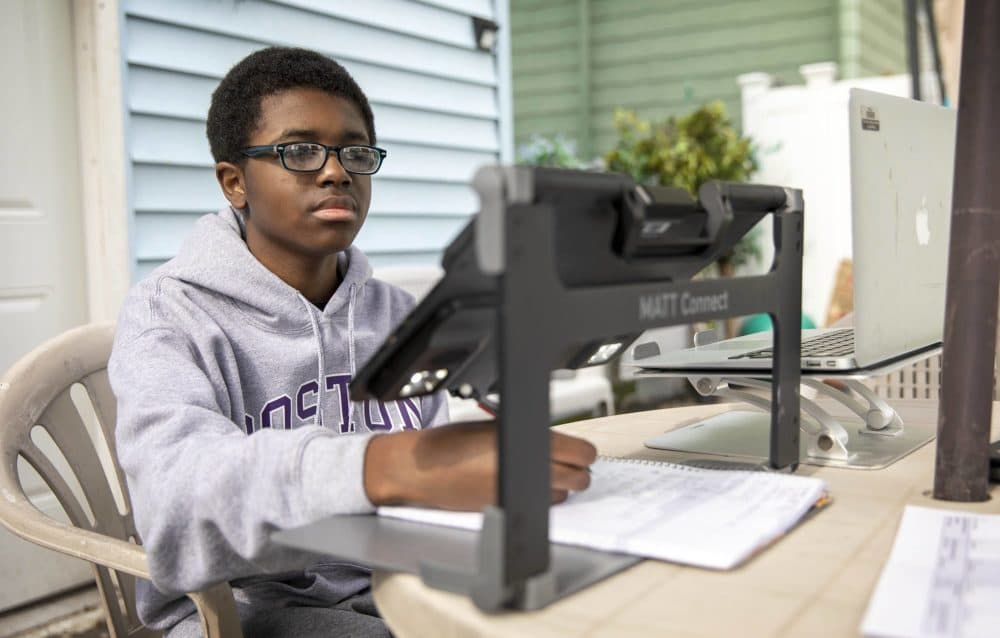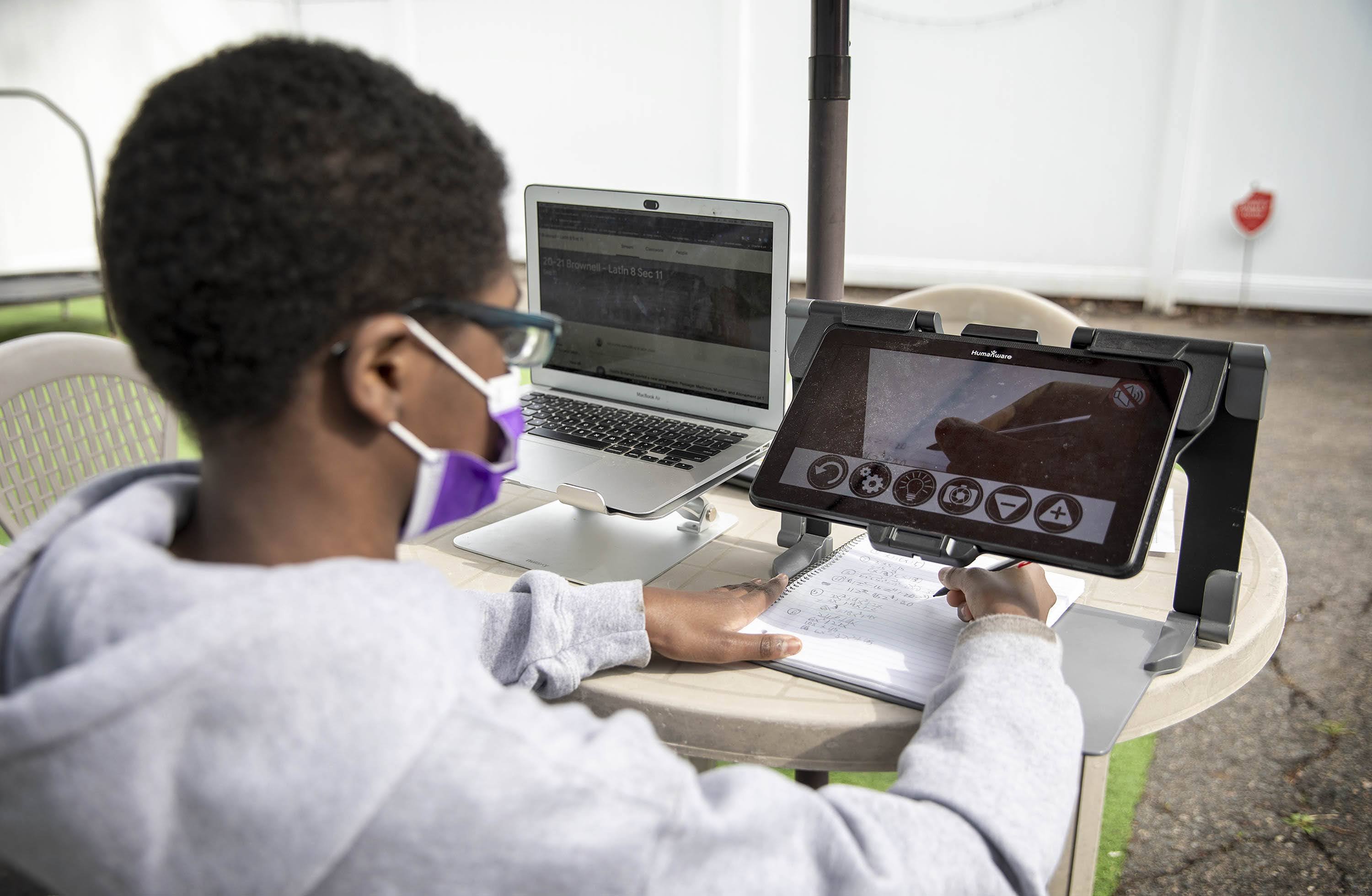Advertisement
Unexpected Lessons
Keeping COVID Tech Solutions Could Provide Better Access For Students With Visual Impairments

Before COVID, one of Michael Besson’s biggest challenges in Boston Latin School was class change.
"My bag is pretty heavy and it took a lot of work to move around," he explained. "Plus, hallways were crowded. I use a cane and that slows me down even more."
Michael is legally blind.
"I can see, but I have no peripheral vision; I can't see sideways," Michael said. "It has given me several hindrances in life, but I work it out using a cane."
Join WBUR Thursday, May 20, at 6 p.m. for a Cityspace conversation about the losses and lessons of pandemic schooling. The event is open to the public and over Zoom.
In addition to books and binders in Michael’s bag, he was also toting around something called a near-distance CCTV which can magnify what’s on the white board or in a worksheet.
His mom, Nalida Besson, said the stress of navigating the early 20th century building and getting set up for class was starting to get to him.

"He had to get through to get to each class, rushing to get there and then set up the equipment," Nalida said. "Even though he had someone to help him with some of these things, he was already starting the class stressed out."
And it didn’t end there. Michael often had to adjust his CCTV depending on where the teacher was standing.
But online learning took that pressure off.
"He was like, 'This is an introverts dream,' " Nalida laughed, remembering Michael's reaction.
Michael's classwork also became a lot more accessible to him over the last year. Information that used to be written on the white board transformed into digital slides that he could enlarge on his computer or run through a screen reader. When teachers prerecorded things, he was able to take his time and re-watch lessons if he needed to.
Educators who work with kids who have visual impairments were quick to acknowledge that not every student had this experience.
Advertisement
"It's like: if you meet one person with a vision impairment, you've met one person with a vision impairment," Amy Mason, president of the Association of Massachusetts Educators of Students with Visual Impairments, said.
Still, Mason said a lot of her members experienced accessibility benefits with online learning.
"We've all noticed across the board that there tends to be some improvements in terms of the students' ability to access their technology equipment," she said. "It's become a much more functional tool. Not just for fun, but for academics and for research."
Educators were, however, forced to press pause on helping students develop other skills during the pandemic. Lessons on taking public transportation and how to safely cross the street couldn’t happen during school closures.
Which is why Mason said she hopes there can be a better balance now that more students are back in the classroom: using in-person instruction with more of those digital supports, like recordings or slide-decks.
Michael and Nalida Besson agreed. They see how in-person learning could be easier, with these new digital supports.
But, Michael is still conflicted about returning to the Boston Latin School.
"It’s my family," he says about what weighs on him. "If I go to school and if I catch COVID, I might not die from it. But I have other family members. Some of them have auto-immune conditions and some of them are old, and I wouldn’t want them to die."
Which is why he hopes he can continue learning from home until COVID is no longer a threat to them.
This article was originally published on May 19, 2021.
This segment aired on May 18, 2021.
